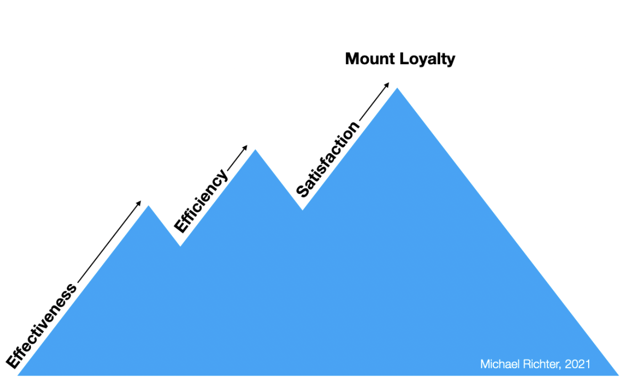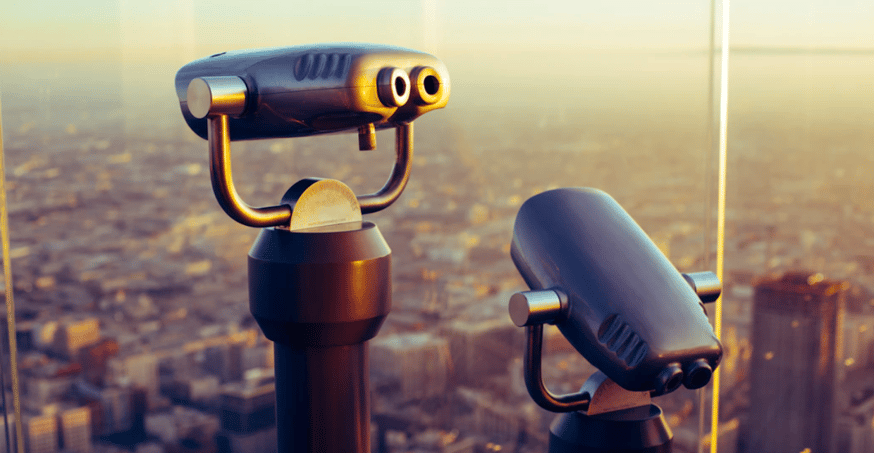Today’s pandemic has shown us just how quickly we’ve digitized our working and personal environment. It has also given e-Commerce a massive boost, something that would’ve probably taken years if not decades without the multiple lockdowns.
The travel and hotel industry has been hit particularly hard but the tide is hopefully changing and soon there will be a window of opportunity for hotels to win back bookings as travel starts to rebound. Now more than ever, it’s time for brands to act as efficiently and effectively as possible, and this starts with focusing on the direct channel and optimizing the website conversion rate.
We very much enjoy debating and exchanging ideas with others who are as passionate about website optimization and our industry as we are! We recently had the pleasure of catching up with Michael Richter, an expert in user experience and conversion optimization in the travel space, who believes strongly in “making websites users happy by understanding their needs, fears and hopes”.

Michael Richter, User Experience, User Research & Conversion Optimization
During our discussion, we explored the extent to which conversion rate optimization is even more important in today’s situation and what the key drivers of conversions will be in the coming weeks and months. Please note that both Michael’s interview with us and his article reflect his personal opinion and he is not speaking or writing as an employee of Robinson Club GmbH or TUI AG.
Good morning Michael. We’ve read about why you think conversion rate optimization is even more important in today’s situation for Online Travel Agencies. The majority of our readers are hoteliers and so we’d love to hear if you think this applies to hotels too?
Conversion optimization is an important topic for every online provider, no matter whether it is an online travel agency or a hotel or hotel brand. In the past, the two most important things for both were providing security for booked guests, and driving the potential travellers to the website to secure a direct booking. Today, the focus must be on the last point.
How can this be achieved?
- Through clear, regular communication of the current situation and the measures in the hotels to convey a "health" security.
- By offering flexible cancellation or rebooking options depending on the overall COVID situation in order to provide financial security
- By clearly positioning as a reliable partner that cares and has as a priority its guests.
By doing so, one addresses the travellers on a health, financial and emotional level and positions oneself as a competent and reliable brand in today’s situation.
What do you feel are the most relevant elements, from a user perspective in this period, for driving conversions in the next few months?
First of all, check your analytics data. The general shift will happen, but everyone must measure for themselves which metrics are changing. To make smart decisions, all relevant data must be taken into account; as wrong data leads to wrong decisions.
The drivers for conversion will be, in my assessment:
- Flexible cancellation and rebooking options.
- Sensitive online and offline communication that addresses and removes the concerns of potential customers.
- An inspirational approach that, besides security, addresses relief and anticipation.
The last point in particular is crucial: after months of restriction, worry and travel abandonment, triggering these feelings can give the final push.
In your opinion, what’s the biggest potential for maximizing conversions for travel and hotel brands in general?
Customer loyalty accompanied by personalized offers. Maximizing conversions for hotel brands will be about understanding personalization for what it really is: help for someone who wants to do something specific.
Personalization is not a hidden display marketing limited to wanting to play advertising messages on one's own site. It’s a means that reduces the effort for a person to achieve what they want to achieve right now. Personalization must be helpful for the person it is aimed at. To do this, however, it is essential to understand what matters to website visitors and motivates them to take action - but also a contact centre. Regardless of whether online or offline, if I feel understood as a human being and people help me, I will not forget this and will also show my appreciation at some point.
That makes a lot of sense Michael, thanks for taking the time to share your views with us today.
If you would like to delve into the topic in more detail, we can highly recommend reading this article written by Michael entitled “User Research and Conversion Rate Optimization for Online Travel Agencies - More Necessary than Ever in Times of Pandemic”. Below, we have summarized some of the key points addressed in his article, applying them to the situation facing hotel brands specifically today.
The post-pandemic restart offers online travel providers extraordinary opportunities!
With regards to online travel distribution, the foreseeable end of the pandemic creates an extremely interesting constellation based on three factors:
- The compulsory digitization and increase in the share of online sales will not be reversed in the post-Covid era.
- The travel restrictions experienced will lead to a travel tidal wave with conversion latency dropping significantly.
- The resulting congestion in traditional sales will benefit online sales as websites can handle traffic increases.
Only if you know the user's needs reliably can both you and the user act effectively and efficiently on websites
No user comes to a website without a reason. They are pursuing a goal. However, this goal does not necessarily have to correspond directly to the main goal of the website, which is usually a conversion.
In addition to other aspects, the user will evaluate the website in terms of whether or not it was helpful in achieving his or her goal (user effectiveness ) and whether this was possible in an uncomplicated (user efficiency) and pleasant manner (user satisfaction). For an above-average positive evaluation of the website and the resulting loyalty ( not to mention recommendation ), a user must "successfully" master the above-mentioned stages:

At the same time, you need to act effectively and efficiently when managing your website, especially when budgets and other resources have been reduced. This means focusing on what has a positive effect or user behaviour, which requires a clear understanding of user needs and intentions. This is where efficient experimentation programmes come in: you should research, ideate, test, build and then repeat the process.

Focus your experimentation program on the short term
This may sound strange, as people usually emphasize the long-term effects of all user research and conversion rate optimization activities. However, the current situation and the need to generate as much revenue as possible in the short term shifts the focus in two ways:
- Mutli-armed-bandit testing - to balance a long-term test and learn strategy with short-term revenue maximization
- Focus on micro-conversions and optimize your funnel step by step.
However, when making this short-term adjustment, don't forget to revalidate all findings when the situation normalizes.
More traffic costs more money, and more and more money. Investments in conversion rate optimization have a lasting effect.
As the end of the pandemic approaches, the competition for users and customers will intensify. This traffic battle will cost money, a lot of money, especially where traffic is bought dearly through bidding.
Before investing in traffic acquisition, you must feel confident it can convert. So you must ensure your hotel website is optimized and fulfils the expectations and requirements of the users. Michael Richter goes so far as to state that the conversion capability of a website is even more important than traffic acquisition itself, or even preceding it. Only if you are sure that your website converts reliably should you buy expensive traffic. And only if you have improved the conversion capability of your website can you invest in additional traffic with a good heart.
Investments in improving a hotel’s website conversion have a lasting effect whereas investments in traffic only have a one-off or limited effect and the costs are always recurring. The most promising way to optimize these costs is to convert purchased traffic into direct traffic by providing an online offer that optimally supports the needs of the user and builds the corresponding loyalty.
Prepare for the "normal state" and check your tracking
Nothing and no one stops you from starting to prepare for reset and rebound, as far as time and resources allow. However, you should not only revalidate tests later. It is also important to carefully analyze the data you have collected. A detailed look at the pre-, during- and post-pandemic periods is essential. This includes, in particular, a comparative funnel analysis that will show you where the focus of your visitors was.
Conclusion
We don't know when, but we know that the pandemic will end. We also know that the digital transformation in B2C eCommerce has been given a turbo boost. This development will not be reversed.
In summary, here are 3 parting thoughts to keep in mind when considering website optimization within your hotel’s direct channel strategy:
- In times of a pandemic, user research is a mandatory task: it is the only way to specifically improve your website in line with user needs. Without experimentation everything is nothing: only those who validate their hypotheses and learn from them can be sure of the success of their efforts.
- Traffic that does not convert in the short, medium or long term only costs money; even a small, converting share cannot hide this fact. People "convert" when you convince them and listen to them.
- In times of pandemic, user research and experimentation have become even more important. Only they can ensure efficient and effective use of resources when resources are limited or cut.






